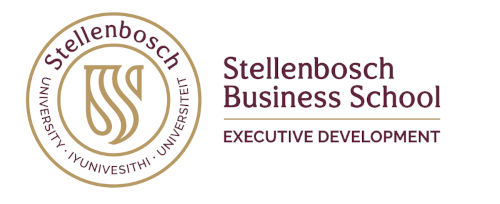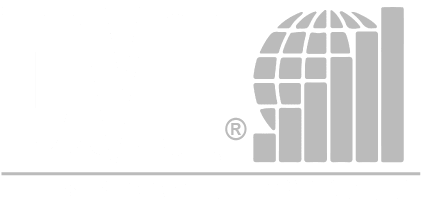SBS-ED Cutting-Edge Master Classes
Introduction
The master classes are intended to prepare business leaders to be responsive and agile in the volatile and ever changing business environment. Business leaders will be enabled to question their current way of thinking and to apply various tools and methods to design towards the desired future. These 2-day master classes can be customised according to the company’s vision, strategic objectives and needs of companies.
Mastering innovation and design thinking
This course equips participants to define and clarify challenging systems and to effectively apply the innovative tools. Innovation that supports business strategy and implementation across all areas of the organization is the focus. The importance of logical, emotional and contextual contributions to implementing innovative tools is highlighted.
Course Content
The course uses a blended learning model drawn from Harvard Business School’s philosophy on linking innovation and system purpose. It includes group facilitation, group conversations, individual and teamwork, and a virtual learning platform. The following subject areas are covered:
- Framework for innovation and design thinking
- Context and problem clarification
- Ideation: Introduction to innovation and design thinking tools, clarifying motivation, diversity in thinking styles and managing innovators
- Key tools for structuring and selecting between ideas
- Trade-offs and continuous improvement
- Impact / difficulty matrix
- Continuous implementation and sustainability
Participant Profile
The course is aimed at senior managers, business owners, functional heads and business unit leaders who are responsible for, or who aspire to contributing to, the strategic process. The course will build awareness and improve their ability to lead innovation in business and increase the innovation capability of their organisations.
A Learning Investment
After completion of the course, you will be equipped to:
- Discover and outline strategic challenges,
- Apply innovative tools and design thinking tools and techniques,
- Influence continuous improvement by implementing and measuring innovation application: Day 1 vs Day 100.
Leveraging Company Culture
Understanding the culture of organisations and planning for change is something that senior managers and company leaders need to master in order to be effective. This course will equip them to identify and assess the main cultures found within organisations, to create competitive environments within them, and to design plans to develop desired company culture.
Course Content
Topics covered are:
- Demystifying Culture – understanding the cultures and behaviours that organisations adopt, and what employees place value on.
- Competitive Culture Framework- understanding customer needs and how to engage them, valuing and equipping employees, creating a results-orientated workplace, improving efficiency, reliability, and predictability of decision making and procedures.
- Mapping the Organisation’s Cultural Shifts – identifying deficiencies, what to do to improve effectiveness and the competencies required to make a difference, identifying barriers to change and developing strategy to change gear.
You will attend classroom presentations, watch videos, be given recommended reading, participate in group discussions and work in teams using your company’s capacity-building strategy benchmark against international organisations as case studies.
Participant Profile
The master class is aimed at senior managers, senior human resources managers, and strategic leadership teams of organizations.
A learning investment
At the end of this master class, you will be able to:
- Identify the dominant organisational culture and understand how this affects performance
- Apply the competitive culture framework
- Map cultural shifts
- Design a development plan to guide cultural change
Strategy Implementation
One of the most common failures of today’s businesses is not implementing well thought out strategies. This programme is specifically designed to give your organisation the tools to perform in this fast-paced business world by equipping you with the techniques and knowledge to implement your strategic goals with measurable success.
Course Content
You will attend classroom presentations, undertake relevant and insightful case studies and complete an action learning assignment. The goal: For you to have the skills to successfully implement company strategy and boost business performance.
Participant Profile
The course is primarily for senior and line managers responsible for implementing strategic business plans.
A learning investment
At the end of this master class, you will be able to:
- Set goals and objectives that guide strategy implementation,
- Develop a business model that accommodates proposed strategies
- Identify which organisational structures and strategies fit together
- Embrace and nurture change
- Develop your own tools and apply them to execute strategy
- Identify risks and ways to reduce them when implementing strategies
Scenario Planning & Analysis
Become an expert decision maker and master the challenges that the future of your industry faces.
In order to master the challenges that the future of your industry faces, you will want to become an expert decision maker in key areas of your business. This course teaches you to step back and equips you to critically reflect on those decisions that are crucial to addressing business challenges in a more relevant way. This course is recommended for those in senior management responsible for planning and developing organisational strategies.
A Learning Investment
This programme will equip you to:
- Understand the business environment more effectively,
- Know the difference between scenario planning, forecasting and trend analysis,
- Judge the purposes of scenario planning,
- Select the best methodology to use in your business environment,
- Develop different scenarios using new tools and techniques,
- Practice scenario planning successfully in your area of interest,
- Explain scenario planning’s role within the strategic management process.
Strategic Conversation & Decision Making
This programme aims at preparing senior managers to actively contribute to strategic conversations and have an impact in decision-making processes that result in better company responsiveness and agility.
Course Content
Topics covered are:
- Framing Strategic Conversation – senior level and executive discourse, managing complexity and unpredictability, from analysis to systems thinking; new rules of executive level conversations.
- Think like a Futurist – analysing different megatrends and scenarios.
- Think like an Innovator – Sensing opportunities for innovation, identifying alternatives, leveraging differentiation.
- Think like a Strategist – strategic interrogation, strategic thinking, strategic framework.
- Think like an Executive – seeing the bigger picture, making the executive decision.
Participant Profile
This programme is for senior managers who want to participate confidently and effectively in strategic conversations and decision-making processes.
A Learning Investment
At the end of this program, you will be able to:
- Apply a strategic framework to review your strategy,
- Analyse different decision-making scenarios,
- Develop a strategic pitch for your executive team.
Strategic Human Resources
Preparing key human resource managers for senior management positions.
Organisations in Mauritius face increasing levels of business complexity, and their human resource (HR) managers are often challenged to play a key strategic role in facilitating business success. This programme in Strategic Human Resources prepares HR leaders for senior management positions, both now and in the future.
Course Content
The programme focuses on understanding HR’s role in facilitating organisational and business success and developing strategic business acumen. Topics covered are:
- The global environment of business – understanding HR’s role, differentiating between HR and business conversations.
- Designing a people strategy – positioning HR strategically, designing a human capital strategy, designing a talent-focused future HR business model and strategy, succession and workforce planning, anticipating resource requirements, exploring performance management and rewards.
- Creating a sustainable future – understanding strategy to co-design the people agenda, reviewing the business strategy, analysing the strategic design process, assessing systems thinking and design thinking in relation to the strategic design and implementation process.
Participant Profile
This programme is for HR leaders required to tackle organisational challenges and with great potential in the industry.
A Learning Investment
After completing the programme, you will be equipped to:
- Contribute effectively to strategic business conversations,
- Use a strategic design process to analyse HR priorities within business strategy,
- Use a design thinking framework to drive your organisation’s people agenda.
Flexible Business Models
Remaining sustainably competitive in an ever-changing business environment requires business leaders to do more than just strategic planning. This Master Class aims at introducing leaders to flexible business model design and implementation. Skills of a competitive differentiator for business leaders are enhanced by exposure to a combination of practical, experiential and theoretical best practices in the domain of business modelling.
Course Content
- Thinking systemically about business models – progressing from analytical static paradigms of thought to more fluid systemic and flexible thought paradigms, the evolution of business modelling and implementation.
- Better management of the changing environment, using flexible business modelling mastery as a competitive advantage.
- Designing flexible business models based on scenario planning.
- Aspects of flexible business model design.
Participant Profile
This Master Class is suitable for senior or experienced leaders who are responsible for setting the strategic direction of the organisation or business unit, or specialists who advise on the future strategy. Participants should be open to embracing new ideas and best practices regarding strategic management.
A learning investment
After completing the programme you will be equipped to:
- Evaluate principles and aspects of flexible business model design,
- Motivate for the differentiating power of sustainable business model flexibility,
- Re-design the flexible business model process and framework,
- Use business model flexibility to review sustainable competitiveness.
Unleashing High Performance in Teams
The workshop aims to develop line managers’ skills, capabilities and behavioural characteristics to understanding how to drive and maintain high team performance.
The workshop explores high performance at a personal level (self-awareness and awareness of others); determines what high team performance looks like and the practical steps to maximising and driving individual and team performance. Interactive games, high-level group discussion, case studies and an action learning assignment will be used in the course.
A Learning Investment
The programme will equip you to:
- Determine your role in driving ‘high performance’;
- Assess your strengths and determined how you can drive high performance at a personal level and in your teams;
- Apply frameworks to understand current team performance and apply practical steps to drive and maintain it.
Coaching for Performance Workshop
Learn coaching skills through a series of experiential learning principles and exercises, allowing iterative skill development. Coach your peers and receive feedback while considering how coaching relates to your role and the work context.
Subject areas covered:
- Contextualising Coaching
- Developing Coaching Skills
- Structuring a Coaching Session
- Coaching Skills Practice
- Leadership Styles
- Developmental Process
- Skills Practice
- Developing Expertise
Learning outcomes:
- Define coaching, discuss its use and boundaries in management practice.
- Build rapport and apply active listening skills.
- Use questioning techniques to support the thinking of your subject(s).
- Structure a coaching conversation using a coaching process model.
- Identify ways of linking multiple coaching conversations into a coherent developmental process.
- Identify how coaching can be used to add value to the role and work context of the participant.








